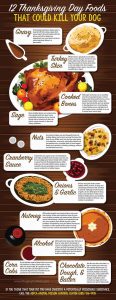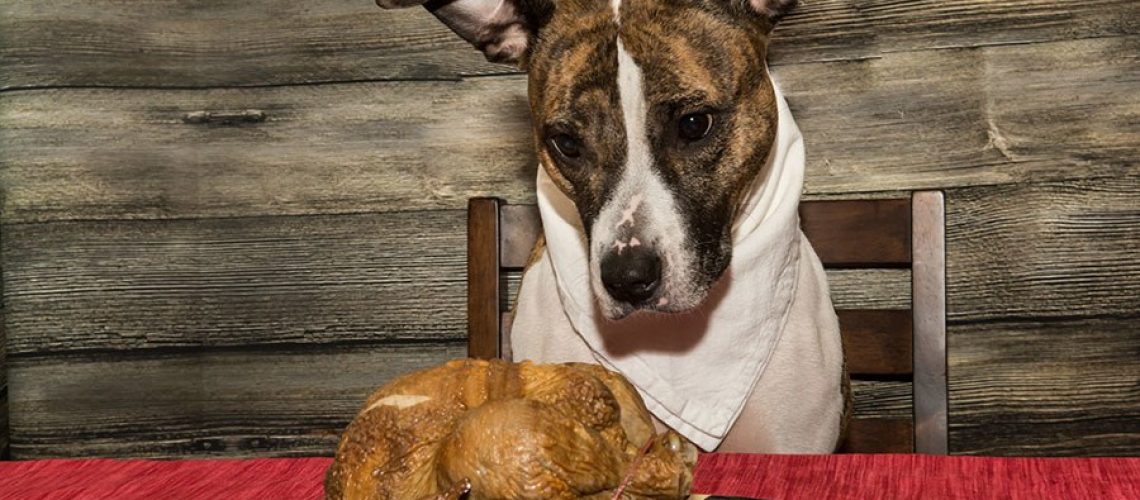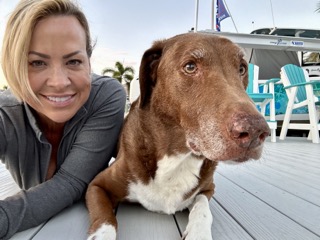This is a story we ran back in 2021, but thought it was worth repeating as we head into the holiday season. Please….Think before you feed. Thanksgiving is a time of love and laughter, of family and friends, of being thankful, and of course, for stuffing ourselves silly with a smorgasbord of Turkey Day treats! That said, if your family and friends includes the four-legged variety, make sure the only foods they eat this Thanksgiving are healthy and safe. Lurking within that pumpkin pie is a deadly danger for your dog. Use our handy-dandy infographic as a reminder for yourself and your houseguests on what’s safe (and what’s not!) for your dog to eat. Thanks to Brandy Arnold from Dogington Post for this informative article!
12 HOLIDAY FOODS THAT COULD KILL YOUR DOG:
Gravy
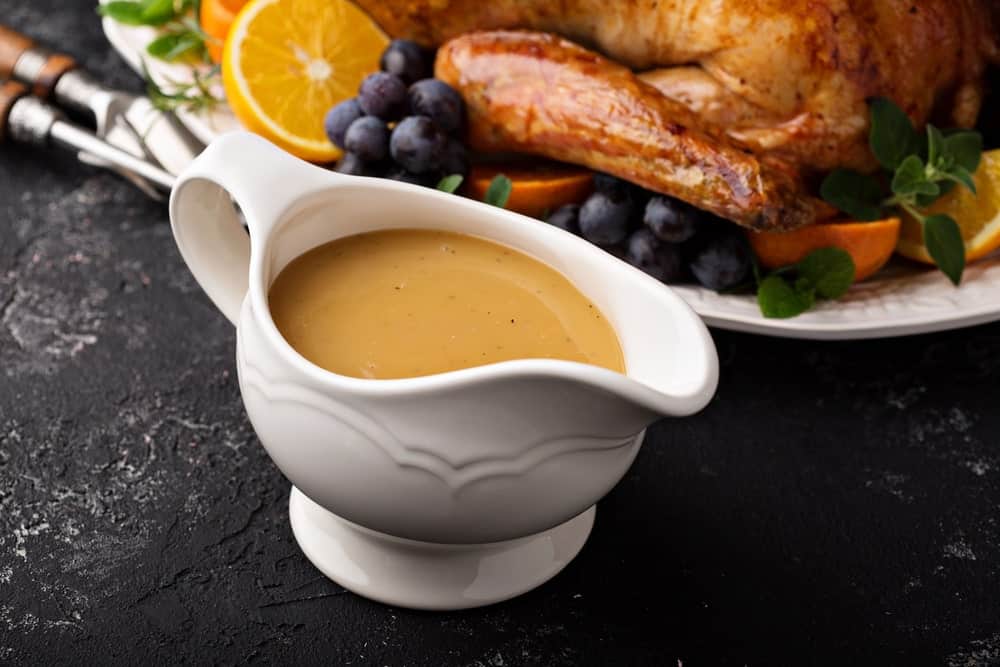
A Thanksgiving dinner staple, gravy is best left off of Fido’s dinner plate. Rich gravy, high in fat and loaded with salt, spices, and other dangerous ingredients can cause upset stomach, gastrointestinal distress, and pancreatitis.
Turkey Skin
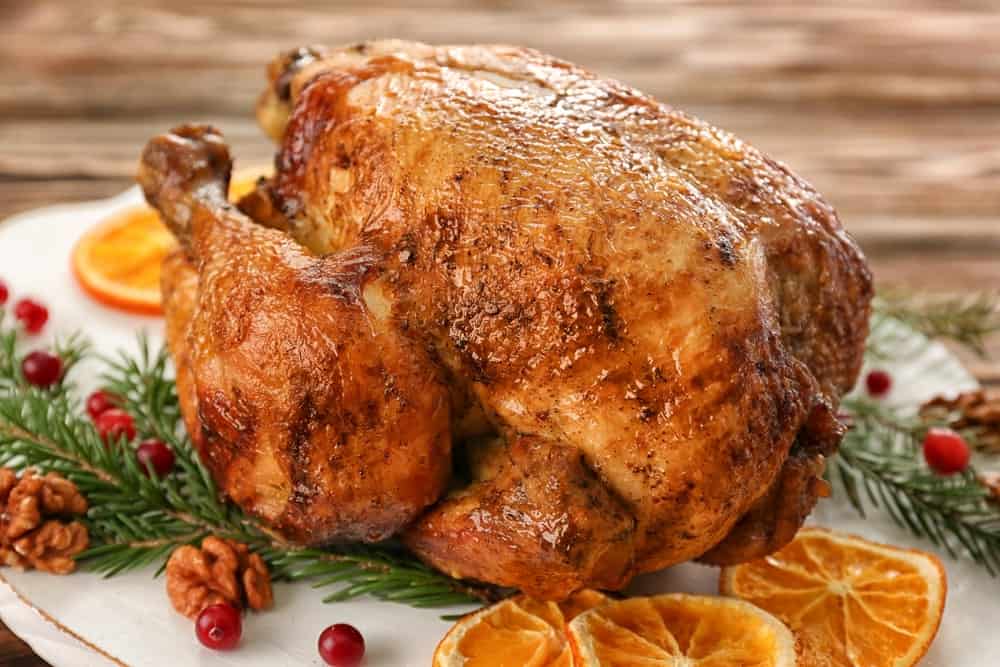
While turkey is generally an excellent protein source for pets, it’s best to only share unseasoned white meat with your furriest family member and keep him away from the turkey skin. Skin is not only high in fat, but contains marinades, butter, spices, and oils that are difficult to digest.
Cooked Bones
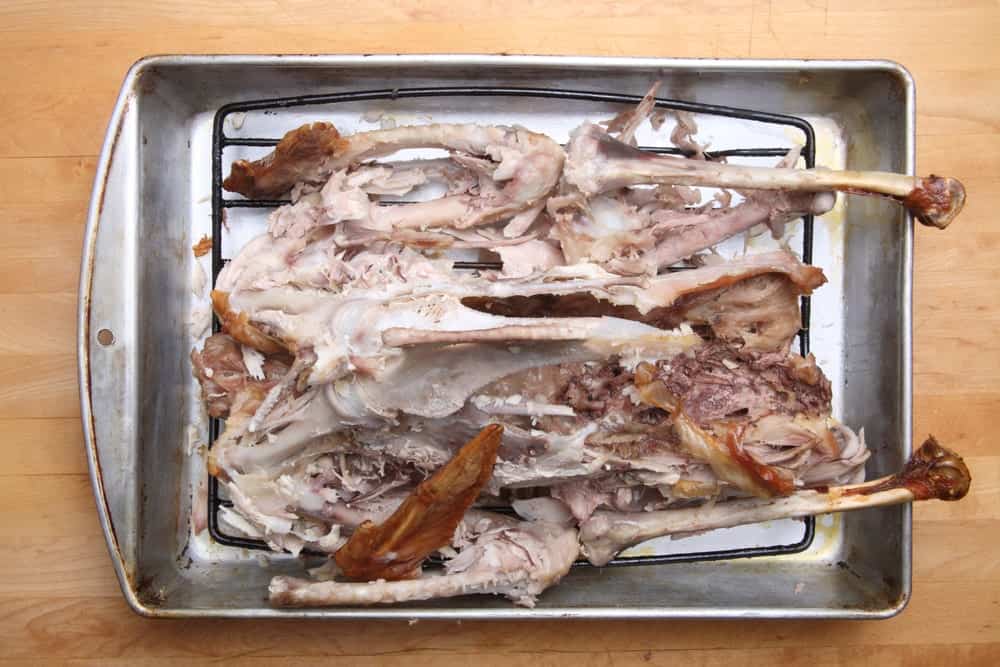
Although raw bones are an excellent treat for any pampered pooch, cooked turkey (and other poultry) bones can be deadly if eaten. When cooked, bones become brittle and can splinter in the digestive tract. Avoid feeding cooked turkey bones and dispose of your turkey carcass carefully so as not to tempt your curious canine.
Sage
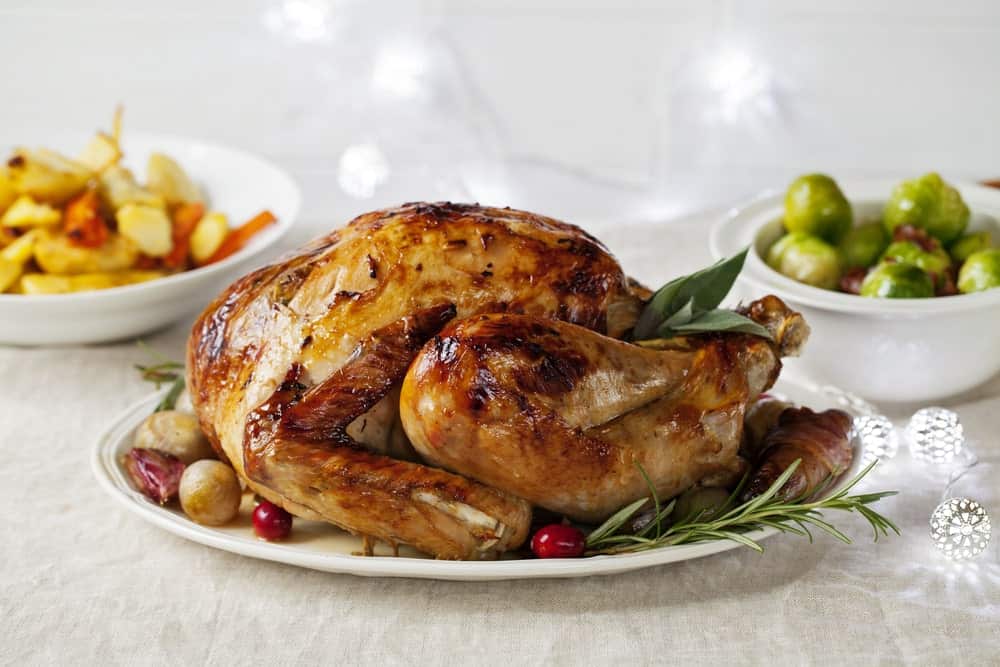
Many holiday dishes are cooked using this popular herb, but sage can be potentially deadly to unlucky dogs that ingest it. Sage contains essential oils that can lead to upset stomach or, worse, liver and kidney issues.
Nuts
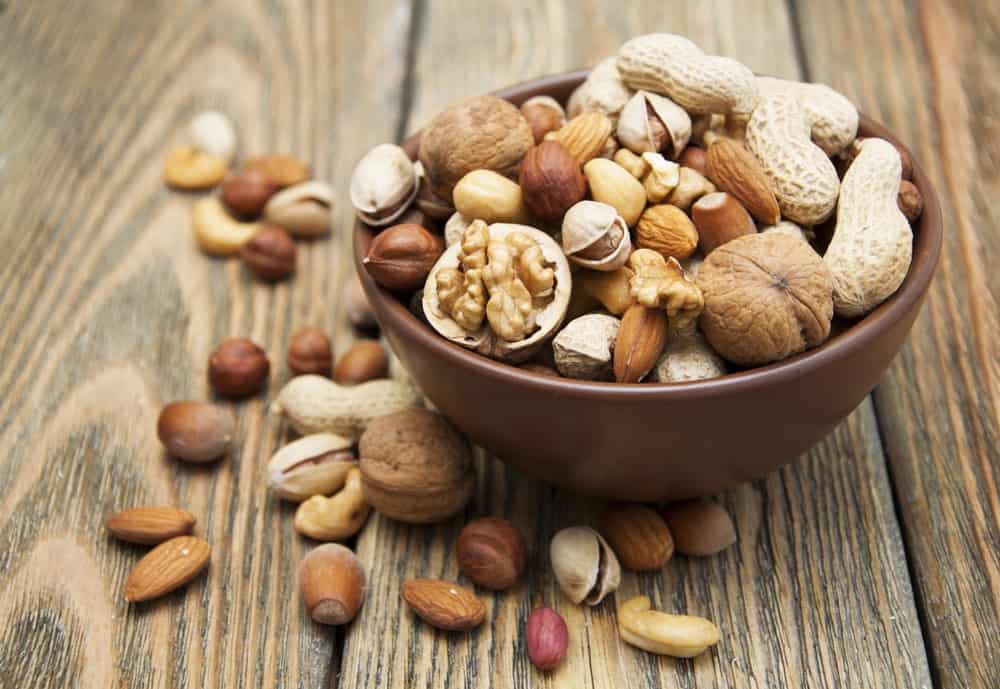
An Autumn staple, nuts are frequently found in holiday dishes and in bowls around the home this time of year. While most nuts are fine when given in moderation, some, especially walnut and macadamia nuts, are highly toxic for our four-legged family. Ingestion can lead to vomiting, lethargy, seizures, and elevated heart rate.
Cranberry Sauce
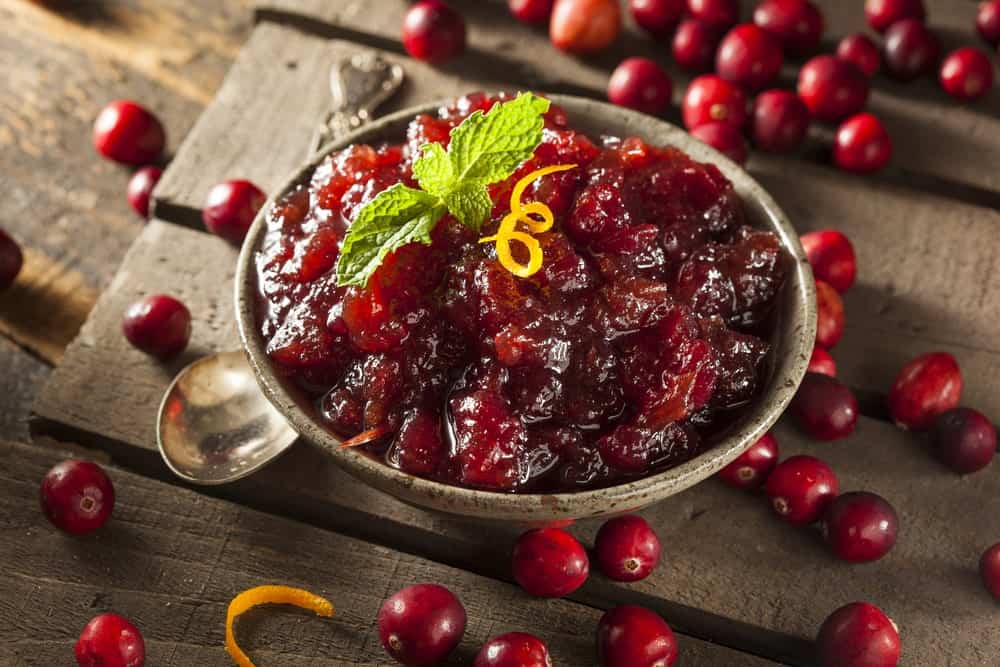
Cranberries are a great source of antioxidants and make excellent treats for dogs and cats, but if you indulge your furriest family with cranberry sauce from the Thanksgiving dinner table, make sure it’s free of raisins, grapes, or currants, and use sparingly as most cranberry sauces contain lots of added sugars.
Onions & Garlic
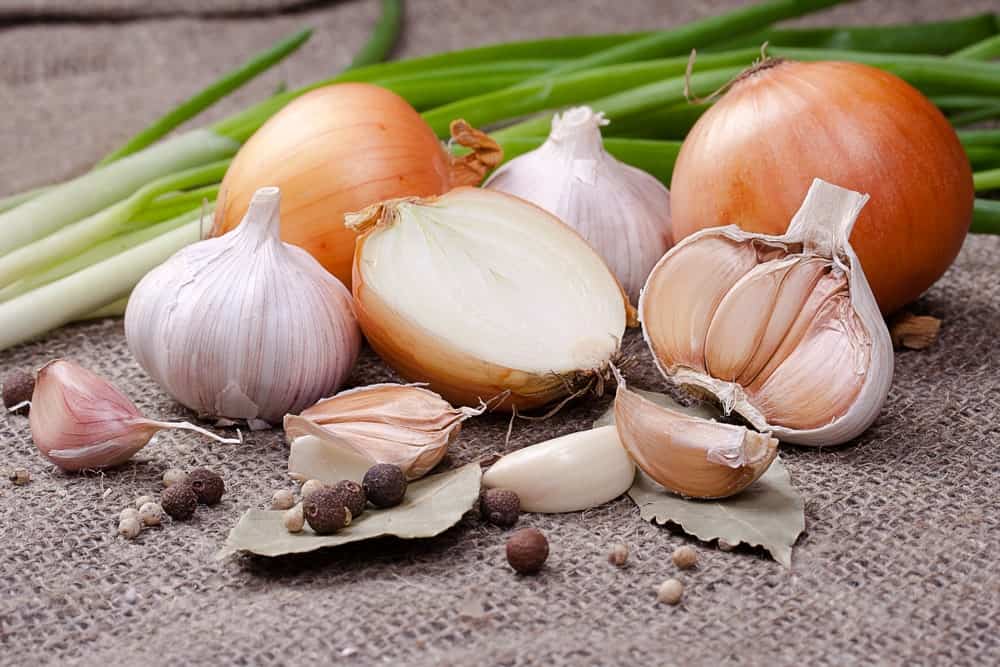
Onions and garlic both contain sulfides which are toxic to dogs and can damage red blood cells and lead to anemia. Although small amounts of garlic can safely be given to dogs, onions (including members of the onion family, like chives and shallots) should be avoided in all forms, including raw, cooked, or powdered.
Nutmeg
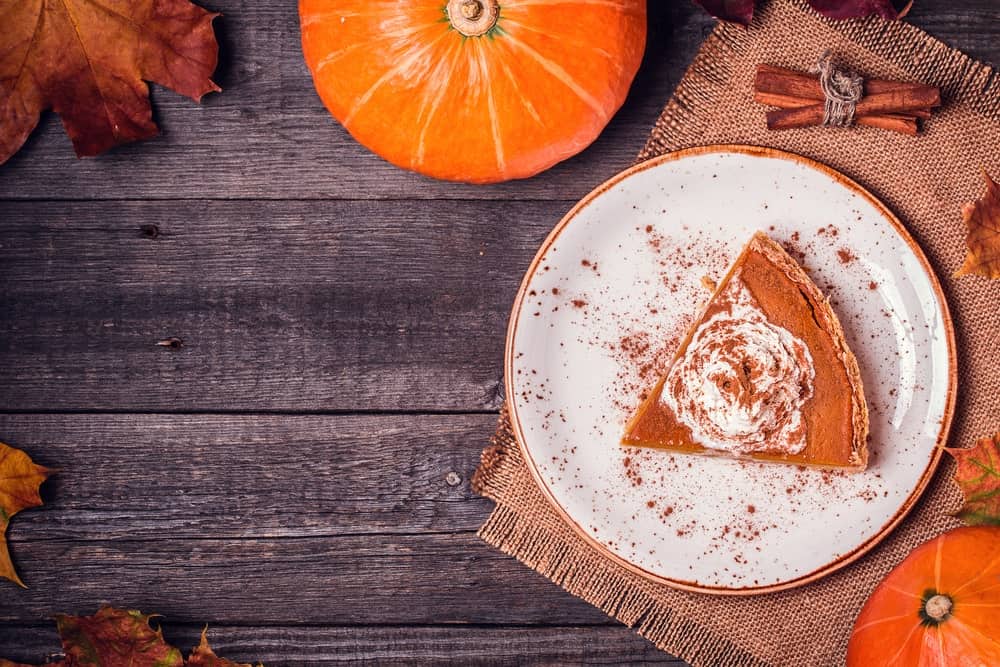
Although pumpkin and sweet potatoes are excellent sources of fiber and nutritious treats for dogs, many holiday pumpkin and sweet potato dishes are seasoned with nutmeg, a highly toxic ingredient that can cause seizures and central nervous system problems if ingested by your pet. Before sharing any pumpkin or sweet potato dishes with your dog, make sure they contain absolutely NO nutmeg.
Alcohol
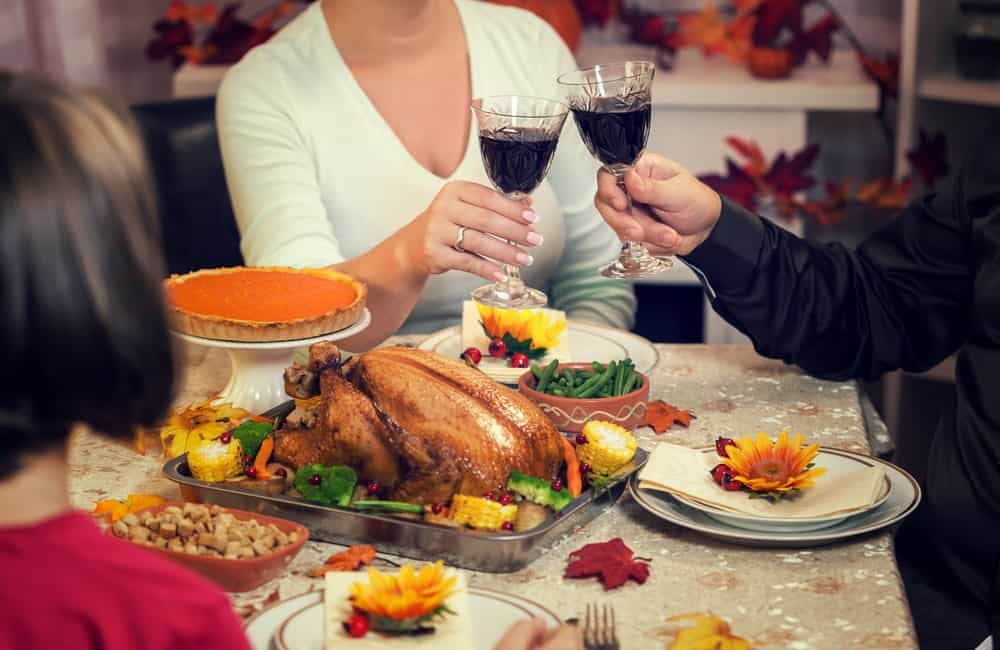
While many dogs enjoy the taste of beer or wine, there’s absolutely no reason to indulge your dog with a sip of your alcoholic beverage this Thanksgiving. Alcohol, and especially the hops in beer, is highly toxic and can lead to death in both dogs and cats.
Corn Cobs
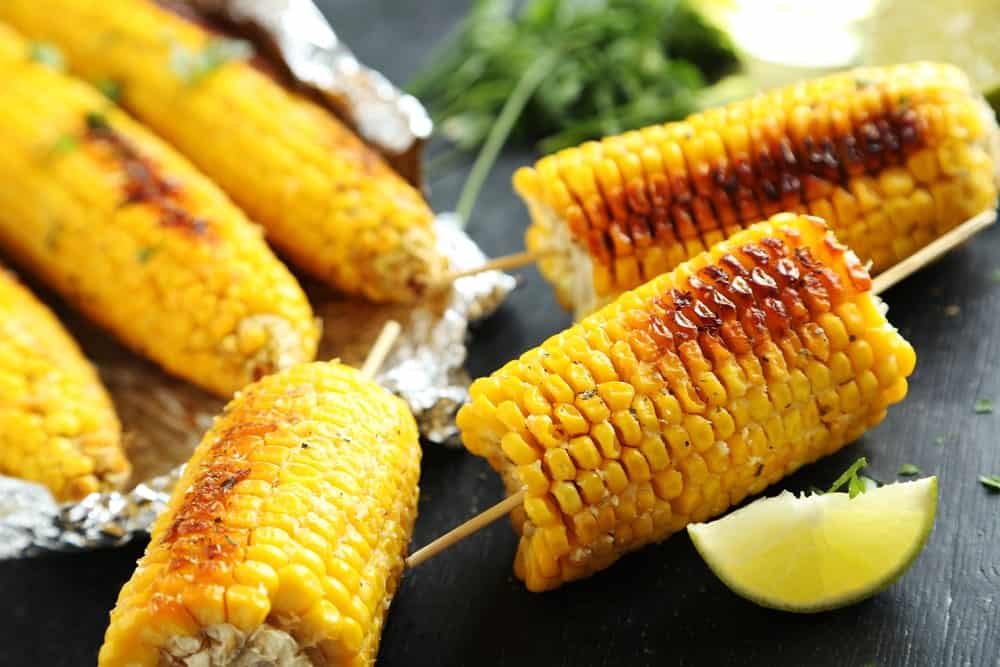
If your holiday meal includes fresh corn on the cob, feel free to share a few kernels of corn with your best buddy. Be careful not to allow him to chew the cob, though! Corn cobs cannot be digested and, if swallowed, can quickly become an intestinal blockage.
Chocolate, Dough, & Batter
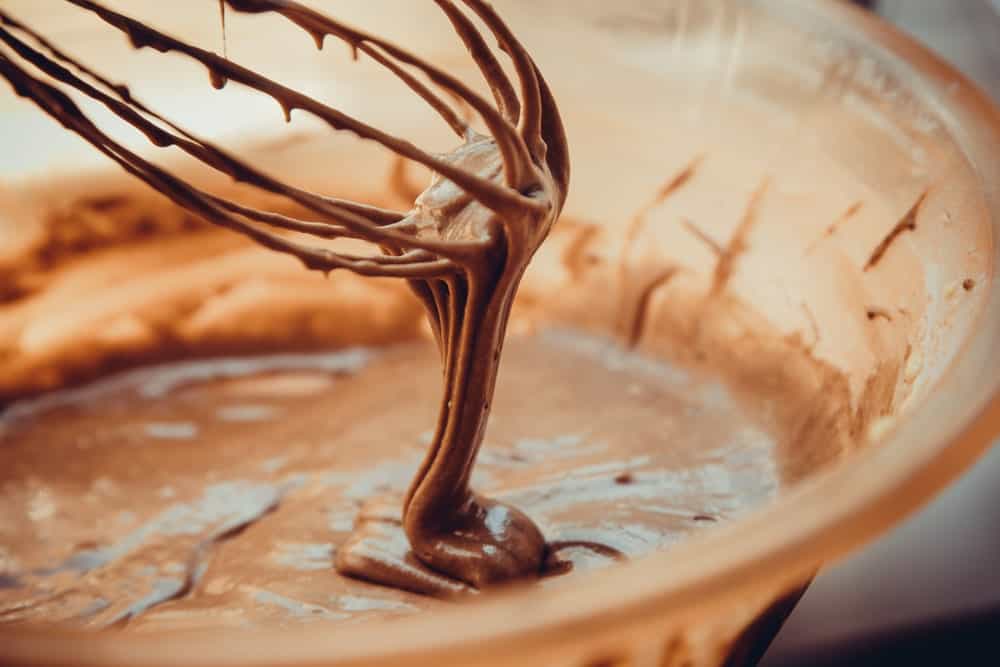
We all know that chocolate is a big no-no for pets, but many don’t realize that dough can actually rise inside your dog’s stomach leading to bloating, severe pain, and possible intestinal blockage. Additionally, doughs and batters often contain raw eggs which can expose your pet to Salmonella.
If you believe that your pet may have ingested a potentially poisonous substance, call the ASPCA Animal Poison Control Center at (888) 426-4435.
And, be sure to share and PIN this post to ensure pet parents everywhere have a safe Thanksgiving holiday!
Here’s an infographic that sums it all up!
